Fundamental Rights in the Indian Constitution, adopted in 1950, enshrines several Fundamental Rights that are essential for the protection and promotion of individual liberties and social justice. These rights form the bedrock of the Indian legal system and are closely linked with the country’s history and struggles for independence.
As an Indian citizen, it is crucial to have a clear understanding of these fundamental rights and their significance in upholding the rule of law and promoting a just and inclusive society. This article aims to provide an overview of the Fundamental Rights in the Indian Constitution, including their scope, provisions, and importance.
Key Takeaways:
- The Indian Constitution guarantees several Fundamental Rights that are crucial for protecting individual liberties and promoting social justice.
- Understanding and upholding these rights is essential for a just and inclusive society in India.
- Some of the key Fundamental Rights include the Right to Equality, the Right to Freedom, the Right Against Exploitation, and the Right to Constitutional Remedies.
- The Constitution also guarantees Cultural and Educational Rights and the Right to Freedom of Religion.
- The Right to Constitutional Remedies empowers individuals to seek legal remedies in case of the violation of their Fundamental Rights.
Overview of the Indian Constitution
The Constitution of India is a written document that outlines the fundamental principles, values, and laws of the country. It was adopted by the Constituent Assembly on 26th November 1949 and came into effect on 26th January 1950, marking the beginning of India as a democratic republic.
The Indian Constitution is known for its detailed and comprehensive framework, providing a legal framework for the governance of the country. Originally, there were 22 parts and 395 articles and 8 scheduled in the Constitution of India. As of 2021, there are 25 parts in the Constitution of India with 448 articles and 12 schedules. Further Reading: Important Amendments in Indian Constitution. It is the world’s longest written constitution.
The Constitution outlines the powers and functions of the three main branches of government: the legislature, the executive, and the judiciary. It also enshrines the fundamental rights of Indian citizens and lays down the principles of equality, fraternity, and justice for all.
Furthermore, the Indian Constitution is a source of inspiration for many other countries that aspire to build democratic systems and promote human rights and social justice.
The Importance of Fundamental Rights
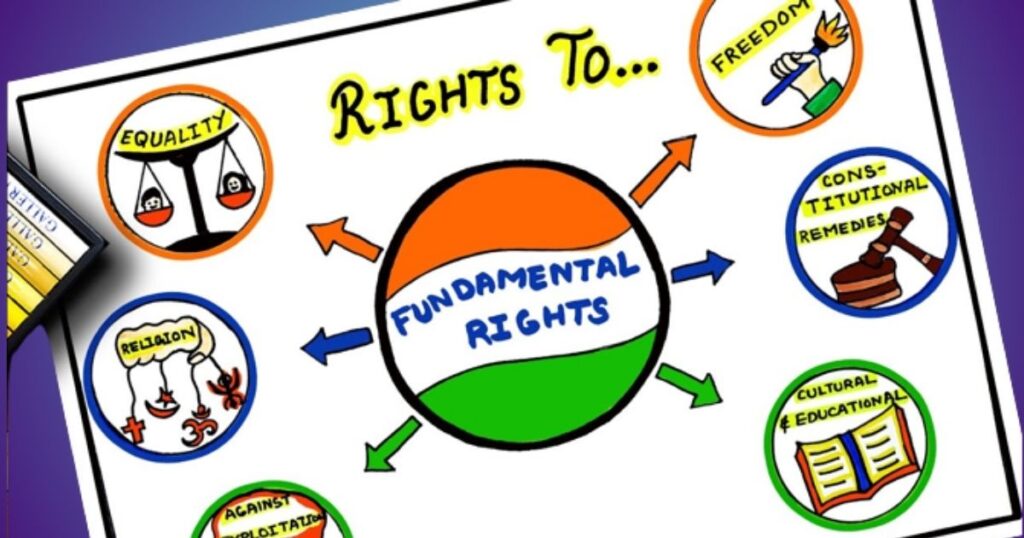
The Fundamental Rights enshrined in the Indian Constitution are essential for the protection of individual liberties and promoting social justice. These rights are considered fundamental because they are basic human rights that are indispensable for the overall development of an individual.
These rights form the cornerstone of a democratic society and ensure that every individual can live with dignity, freedom, and equality. Fundamental Rights protect the individual against arbitrary state action and provide an avenue for enforcing these rights through the judiciary.
The Fundamental Rights in the Indian Constitution are designed to ensure that every individual, regardless of their caste, creed, religion, sex, or place of birth, has equal rights and opportunities. The rights in the Indian Constitution are not only restricted to citizens but are also available to foreigners residing in the country.
The significance of Fundamental Rights is underscored by the fact that they are enforceable by courts. Citizens can approach the judiciary if their Fundamental Rights are violated by the state or any other individual. This ensures that the rule of law is maintained and that the rights of the citizens are protected.
The Fundamental Rights in the Indian Constitution are a crucial component of a just and inclusive society. Upholding these rights is essential to ensure that every individual is treated with dignity and respect, regardless of their background or circumstances.
Right to Equality
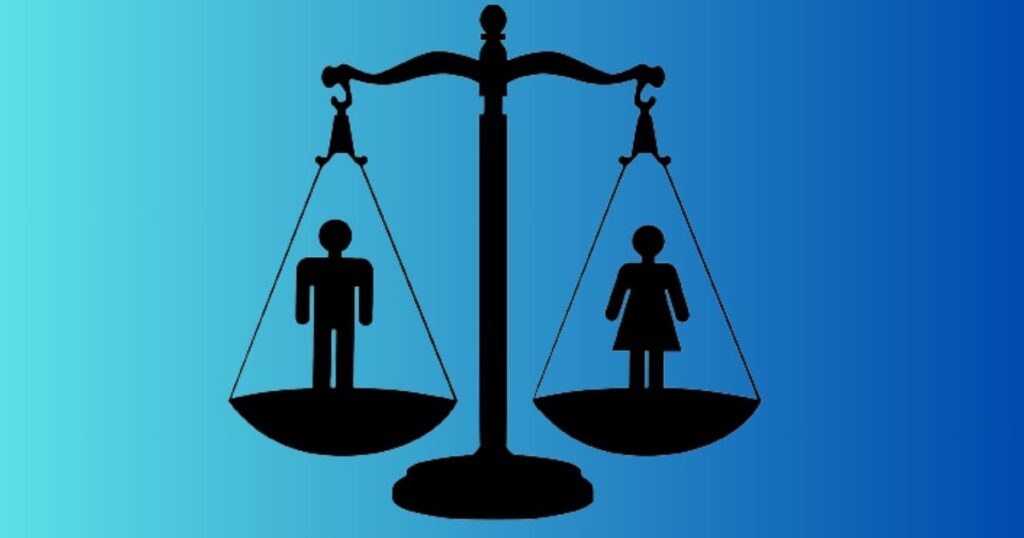
The Right to Equality is one of the most important fundamental rights enshrined in the Indian Constitution. It ensures that every individual is equal before the law, and prohibits discrimination based on religion, caste, race, or gender. The right to equality plays a crucial role in promoting social justice and empowering marginalized communities.
The Constitution of India guarantees the right to equality through various provisions, such as:
- Article 14: Equality before law.
- Article 14 ensures that all individuals are equal before the law and guarantees equal protection of the laws.
- Article 15: Prohibition of discrimination on grounds of religion, race, caste, sex, or place of birth.
- Article 15(1): Prohibits discrimination by the state on the grounds of religion, race, caste, sex, or place of birth.
- Article 15(2): Empowers the state to make special provisions for the advancement of socially and educationally backward classes, including Scheduled Castes (SCs), Scheduled Tribes (STs), and Other Backward Classes (OBCs).
- Article 15(3): Allows educational institutions, whether aided or unaided by the state, to provide for special provisions for the advancement of SCs, STs, and socially and educationally backward classes.
- Article 16: Equality of opportunity in matters of public employment.
- Article 16(1): Guarantees equality of opportunity in public employment for all citizens.
- Article 16(2): Prevents discrimination in public employment on the grounds of religion, race, caste, sex, descent, place of birth, residence, or any of them.
- Article 16(3): Allows the state to make reservations in public employment for SCs, STs, and OBCs.
- Article 16(4): Provides for reservations in promotions for SCs and STs.
- Article 16(5): Empowers the state to provide for reservations in favor of backward classes in posts and services under the state.
- Article 17: Abolition of untouchability.
- Article 17 abolishes the practice of untouchability in any form and prohibits its practice in any public place.
- Article 18: Abolition of titles.
- Article 18(1): Abolishes titles and distinctions except military and academic titles.
- Article 18(2): Prohibits citizens of India from accepting titles from foreign states without the consent of the President of India.
Furthermore, the Constitution also allows for affirmative action to be taken for the upliftment and empowerment of socially and economically backward classes and Scheduled Castes and Scheduled Tribes.
The right to equality is a cornerstone of a just and inclusive society, and every effort must be made to uphold and protect this fundamental right.
Right to Freedom

- Article 19: Protection of certain rights regarding freedom of speech, etc.
- Article 19(1)(a): Freedom of speech and expression.
- Article 19(1)(b): Freedom to assemble peacefully and without arms.
- Article 19(1)(c): Freedom to form associations or unions.
- Article 19(1)(d): Freedom to move freely throughout the territory of India.
- Article 19(1)(e): Freedom to reside and settle in any part of the territory of India.
- Article 20: Protection in respect of conviction for offenses.
- Article 20(1): Protection against ex post facto laws.
- Article 20(2): Protection against double jeopardy.
- Article 20(3): Protection against self-incrimination.
- Article 21: Protection of life and personal liberty.
- This article guarantees the right to life and personal liberty, and it has been interpreted by the Indian judiciary to include a wide range of rights related to the dignity and well-being of individuals.
- Article 21A: Right to education.
- This article was added by the 86th Amendment Act, 2002, and it provides for the right to free and compulsory education for children between the ages of 6 and 14 years.
- Article 22: Protection against arrest and detention in certain cases.
- Article 22(1): Protection against arrest and detention in case of ordinary laws.
- Article 22(2): Protection against arrest and detention in case of preventive detention laws.
- Article 22(3): Right to be informed of the grounds of arrest.
- Article 22(4): Right to consult and be defended by a legal practitioner.
- Article 22(5): Preventive detention laws to be reviewed by an Advisory Board.
The Right to Freedom is one of the core Fundamental Rights guaranteed by the Indian Constitution. It is a fundamental right given to all citizens of India to ensure that they live with dignity and freedom. This right assures Indian citizens certain essential freedoms such as the freedom of speech and expression, the freedom of assembly, the freedom of movement, the freedom to form associations and unions, and the freedom to practice any profession, trade or business.
This right is meant to provide individuals with the autonomy and independence to make choices and decisions without interference from the government or other individuals. Freedom of speech and expression, for instance, grants Indian citizens the right to voice their opinions openly without fear of retaliation or government censorship. Freedom of movement ensures that individuals can travel freely throughout the country and abroad without any restrictions, while the right to form associations allows for assembly and organization.
The Right to Freedom also includes the right to personal liberty and protection against arbitrary arrest and detention. This means that a person cannot be arrested or detained without proper legal reasoning, and any such detention without a proper trial is illegal and unconstitutional. The Indian Constitution provides for speedy trials in such cases to safeguard the rights of individuals against unjust arrest, detention, and incarceration.
The right to freedom has been interpreted broadly by the courts of India to include other freedoms not explicitly listed in the Constitution. For instance, the right to privacy was declared a fundamental right in 2017, granting Indian citizens the right to control their personal information and ensuring the protection of their privacy from government intrusion.
The Right to Freedom is essential for the growth and development of an individual, society, and the country as a whole. It is the foundation of individual liberty, autonomy, and democracy. By protecting this right, the Indian Constitution promotes social and economic growth, political stability, and the protection of human rights.
Right Against Exploitation
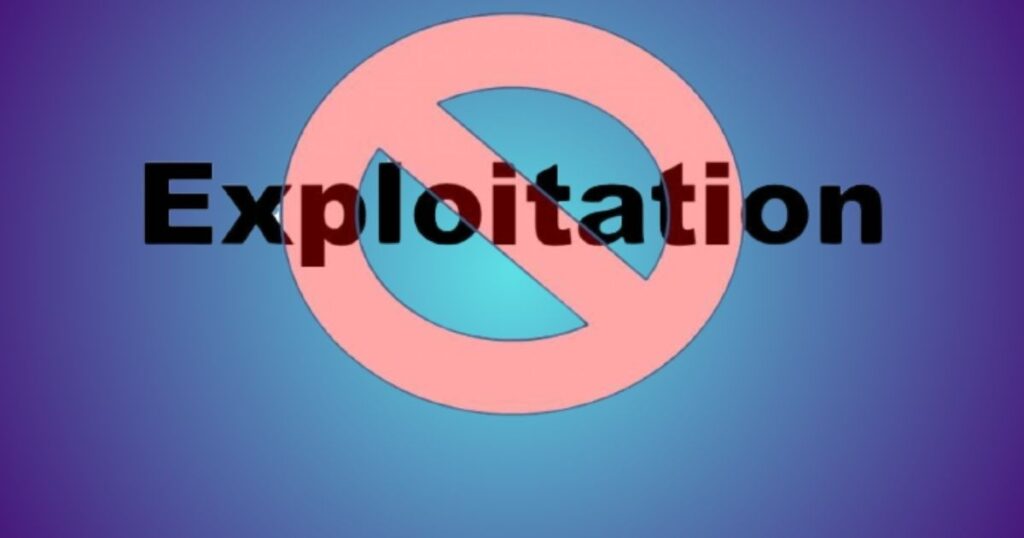
The “Right Against Exploitation” in the Indian Constitution is primarily covered by two articles: Article 23 and Article 24. These articles aim to prevent and abolish various forms of exploitation and forced labor. Here are the articles related to the Right Against Exploitation:
- Article 23: Prohibition of traffic in human beings and forced labor.
- Article 23(1): Prohibits human trafficking and the forced labor of any kind, including begar (forced labor) and other similar forms of coercion.
- Article 23(2): Empowers the State to make laws to enforce the provisions of Article 23.
- Article 24: Prohibition of employment of children in factories, etc.
- Article 24 prohibits the employment of children below the age of 14 years in factories, mines, or other hazardous employment.
The Right Against Exploitation is a fundamental right enshrined in the Indian Constitution, aimed at protecting individuals from various forms of exploitation. This right prohibits human trafficking, forced labor, and child labor. It also prohibits the employment of children under the age of 14 years in any hazardous occupations or factories.
The Constitution defines trafficking of humans, including children, for the purpose of forced labor, prostitution, or other forms of exploitation as a punishable offense. The Right Against Exploitation empowers the government to take measures to prevent exploitation and to provide for the welfare of children, particularly those who are at risk of being exploited.
This right also gives individuals the right to file a writ petition in the High Court or Supreme Court of India in case of exploitation, such as forced labor or human trafficking. This legal remedy ensures that individuals have access to justice and can seek legal recourse in case of violation of their rights.
In addition, various laws have been enacted to provide further protection to individuals against exploitation, such as the Bonded Labor System (Abolition) Act, 1976, and the Child Labor (Prohibition and Regulation) Act, 1986. These laws aim to abolish bonded labor and protect children from exploitation in various sectors.
The Right Against Exploitation is of utmost significance in India, given the prevalence of human trafficking, forced labor, and child labor in various sectors. It ensures that the government takes effective measures to prevent exploitation and safeguard the rights of individuals, particularly those who are vulnerable.
Right to Freedom of Religion
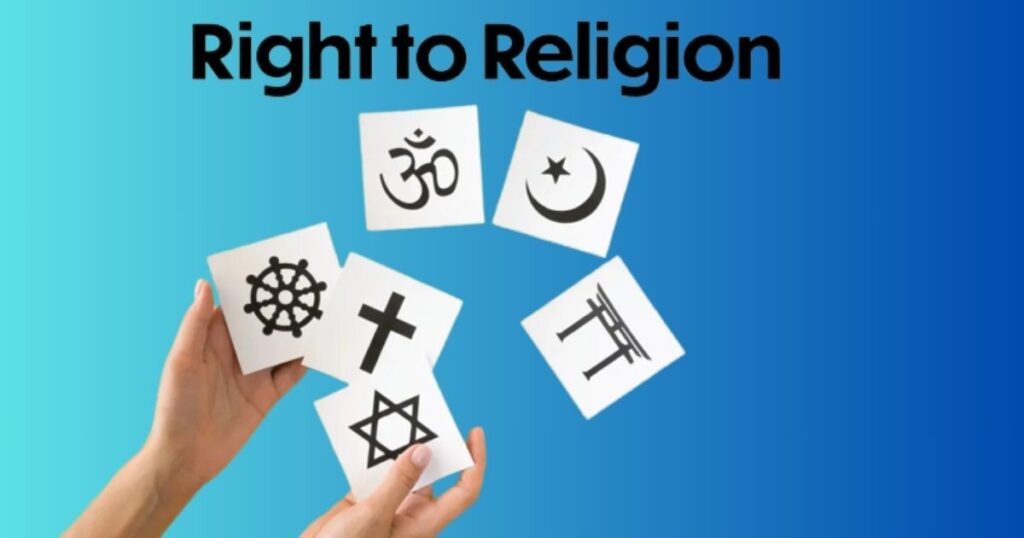
The Right to Freedom of Religion is one of the essential Fundamental Rights enshrined in the Indian Constitution. This right guarantees every individual the freedom to choose, practice, and propagate their religion without any coercion or interference.
The significance of this right lies in its role in promoting religious harmony and tolerance throughout India. In a country as diverse as India, people from different religions coexist, and this right ensures that every individual has the freedom to practice and celebrate their religion without any fear of persecution or discrimination.
The Right to Freedom of Religion in the Indian Constitution is primarily covered by Articles 25 to 28. These articles provide citizens with the freedom to profess, practice, and propagate their religion of choice. Here is a list of these articles:
- Article 25: Freedom of conscience and free profession, practice, and propagation of religion.
- Article 25(1): Guarantees the right to freedom of religion, including the freedom to profess, practice, and propagate any religion.
- Article 25(2): Allows the State to regulate or restrict religious practices in the interest of public order, morality, and health.
- Article 26: Freedom to manage religious affairs.
- Article 26(b): Grants religious denominations and institutions the right to manage their own affairs in matters of religion.
- Article 26(c): Allows religious denominations and institutions to own and acquire property and administer it according to their laws.
- Article 27: Freedom as to payment of taxes for the promotion of any particular religion.
- Article 27 prohibits the levy and collection of taxes for the promotion or maintenance of any particular religion.
- Article 28: Freedom from attending religious instruction or religious worship in certain educational institutions.
- Article 28(1): Prohibits religious instruction in educational institutions wholly maintained by the State.
- Article 28(2): Provides that attendance at religious instruction or religious worship in any educational institution recognized by the State is optional for students.
The Right to Freedom of Religion also prohibits the state from favoring one religion over another. This ensures that every citizen is equal before the law, regardless of their religion.
Moreover, this right protects individuals from forced conversions or religious persecution. In case of any violation of this right, individuals have the right to seek legal remedies and hold the perpetrator accountable.
Overall, the Right to Freedom of Religion plays a crucial role in promoting religious harmony, protecting individual liberties, and fostering a just and inclusive society in India.
Cultural and Educational Rights
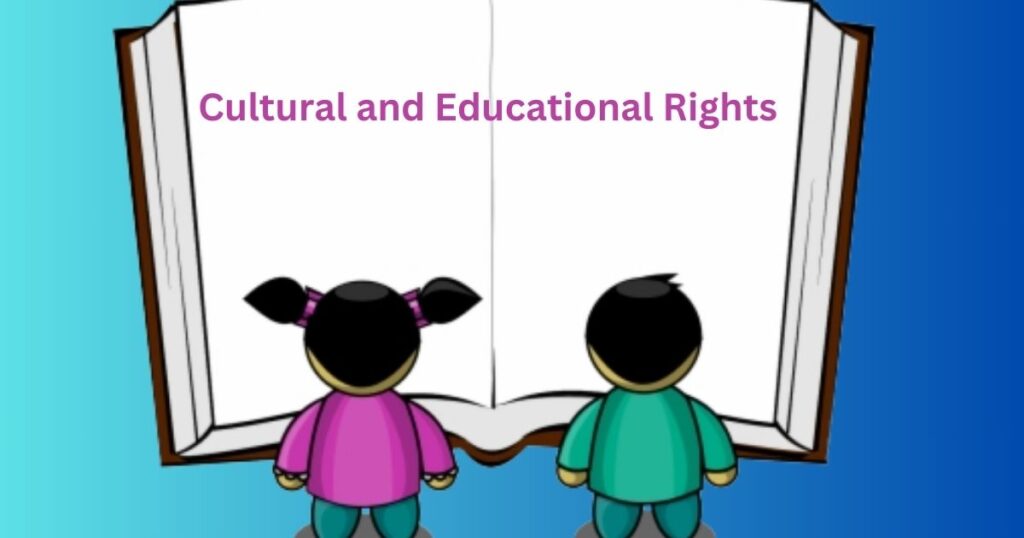
Cultural and Educational Rights are an essential component of the Fundamental Rights enshrined in the Indian Constitution. These rights aim to ensure that every individual in India has access to education and the freedom to preserve their culture and language.
The Constitution provides for the protection and promotion of cultural and educational rights through various provisions. Article 29 and Article 30 guarantee the right of minorities to preserve their culture, language, and education. Article 29 states that any section of citizens with a distinct culture, language, script, or religion shall have the right to conserve the same. Simultaneously, Article 30 provides for the right of minorities to establish and administer educational institutions of their choice.
- Article 29: Protection of interests of minorities.
- Article 29(1): Protects the cultural and educational rights of minorities by granting them the right to conserve their distinct language, script, or culture.
- Article 29(2): Prevents discrimination against minorities in admission to educational institutions funded or recognized by the State on grounds of religion, race, language, or any other minority status.
- Article 30: Right of minorities to establish and administer educational institutions.
- Article 30(1): Grants religious and linguistic minorities the right to establish and administer educational institutions of their choice.
- Article 30(2): Prohibits the State from discriminating against any educational institution managed by a minority based on the fact that it is administered by a minority institution.
The cultural and educational rights also include the right to education under Article 21A, which was added by the 86th Amendment Act of 2002. The amendment made education a fundamental right for children between the ages of 6 and 14 years. The State is responsible for providing free and compulsory education to all children within this age group.
These cultural and educational rights have significant implications for promoting inclusivity in education and preserving the diversity of Indian culture. They ensure that no individual is deprived of the right to education and the freedom to preserve their culture and language.
Right to Constitutional Remedies
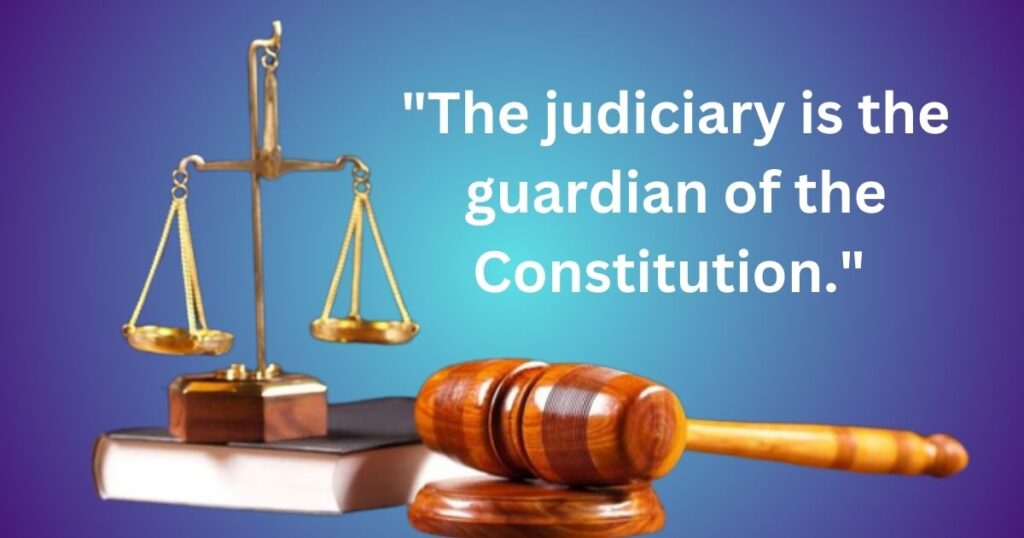
The Right to Constitutional Remedies is a vital component of the Fundamental Rights enshrined in the Indian Constitution. It guarantees citizens the right to seek legal remedies in case of the violation of their Fundamental Rights. This right empowers citizens to approach the courts if they feel their rights are being infringed upon, making it a crucial tool in upholding the rule of law.
- Article 32(1): Grants the right to move the Supreme Court by appropriate proceedings for the enforcement of fundamental rights.
- Article 32(2): Empowers the Supreme Court to issue writs (Habeas Corpus, Mandamus, Prohibition, Quo Warranto, and Certiorari) for the enforcement of fundamental rights.
- Article 32(3): This clause specifies that the right to move the Supreme Court for the enforcement of fundamental rights is not suspended during a proclamation of a state of emergency.
The right to constitutional remedies allows citizens to approach the Supreme Court or High Court for the enforcement of their Fundamental Rights. These courts can issue a writ of habeas corpus, mandamus, prohibition, quo warranto, or certiorari to protect the rights of citizens. Moreover, this right is not limited to citizens alone and can be exercised by any person, including non-citizens residing in India.
The significance of this right lies in its ability to provide a quick and effective remedy to individuals whose rights have been violated. It ensures that no individual, institution, or authority is above the law and that justice is accessible to all. It also serves as a deterrent against the violation of Fundamental Rights, as authorities are aware that they can be held accountable for their actions.
In conclusion, the Right to Constitutional Remedies is a crucial right that guarantees citizens the ability to seek legal remedies in the event of the violation of their Fundamental Rights. Upholding this right ensures that the rule of law is maintained and that justice is accessible to all.
List of Fundamental Rights in Indian Constitution
The Indian Constitution recognizes seven fundamental rights for Indian citizens. These rights are:
- Right to Equality: This includes equality before the law, prohibition of discrimination on grounds of religion, race, caste, sex, or place of birth, and equality of opportunity in matters of employment, education, and access to public spaces.
- Right to Freedom: This includes freedom of speech and expression, assembly, association, movement, and residence. It also provides for the protection of individual liberties and safeguards against arbitrary detention, exile, or slavery.
- Right against Exploitation: This aims to prevent human trafficking, forced labor, and other forms of exploitation. It also prohibits child labor and safeguards against the exploitation of economically weaker sections of society.
- Right to Freedom of Religion: This guarantees every citizen the freedom to choose, practice, and propagate any religion of their choice. It also prohibits discrimination on the basis of religion.
- Cultural and Educational Rights: These rights ensure the preservation and promotion of diverse cultures and the right to education. It also includes the right of minorities to establish and administer educational institutions of their choice.
- Right to Property: This was repealed by the 44th amendment in 1978.
- Right to Constitutional Remedies: This empowers citizens to seek legal remedies in case of the violation of their fundamental rights. This includes the right to approach the Supreme Court or High Courts for the enforcement of these rights.
These fundamental rights are essential for the protection of citizens’ liberties and the promotion of social justice. They form the bedrock of the Indian Constitution and are a crucial element in ensuring a just and inclusive society.
You Can Read: Understanding the Basic Structure Doctrine of Indian Constitution
Conclusion
As we conclude, it is evident that the Fundamental Rights enshrined in the Indian Constitution play a crucial role in promoting a just and inclusive society. These rights ensure equality, freedom, protection against exploitation, and the right to seek legal remedies. It is your responsibility as an Indian citizen to understand and uphold these rights to safeguard your own freedoms and promote social justice for all.
The Indian Constitution and its Fundamental Rights remain a cornerstone of the country’s democratic values and principles. As India progresses towards a brighter future, it is essential to remain committed to these values and principles and ensure that the rights of every citizen are protected and upheld.
By understanding the significance of the Indian Constitution and its Fundamental Rights, you can contribute to the development of a better and more inclusive India. So, embrace your rights and freedoms, and ensure that they are respected and protected at all times.
FAQ
Q: What are Fundamental Rights?
A: Fundamental Rights are a set of basic rights and freedoms guaranteed to every citizen of India by the Indian Constitution.
Q: How many Fundamental Rights are there in the Indian Constitution?
A: There are six Fundamental Rights enshrined in the Indian Constitution.
Q: What is the significance of Fundamental Rights?
A: Fundamental Rights are vital in protecting the individual liberties and promoting social justice in India.
Q: What is the Right to Equality?
A: The Right to Equality ensures equality before the law, prohibits discrimination, and promotes affirmative action.
Q: What does the Right to Freedom encompass?
A: The Right to Freedom includes freedoms such as freedom of speech and expression, assembly, and movement.
Q: What does the Right Against Exploitation aim to prevent?
A: The Right Against Exploitation aims to prevent human trafficking, forced labor, and other forms of exploitation.
Q: What does the Right to Freedom of Religion guarantee?
A: The Right to Freedom of Religion guarantees every individual the freedom to choose, practice, and propagate their religion.
Q: What do Cultural and Educational Rights ensure?
A: Cultural and Educational Rights ensure the preservation of diverse cultures and the right to education.
Q: What is the significance of the Right to Constitutional Remedies?
A: The Right to Constitutional Remedies empowers individuals to seek legal remedies in case of Fundamental Rights violations.
Q: What are the Fundamental Rights in the Indian Constitution?
A: The Fundamental Rights in the Indian Constitution include the Right to Equality, Right to Freedom, Right Against Exploitation, Right to Freedom of Religion, Cultural and Educational Rights, and Right to Constitutional Remedies.
People Also Read: Fundamental Duties in the Indian Constitution
People Also Read: Understanding the Basic Structure Doctrine of Indian Constitution










